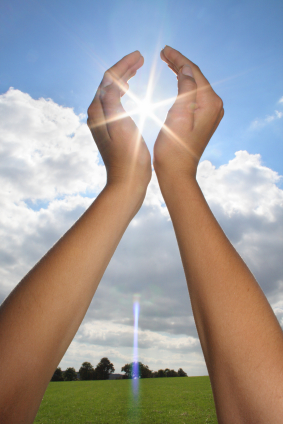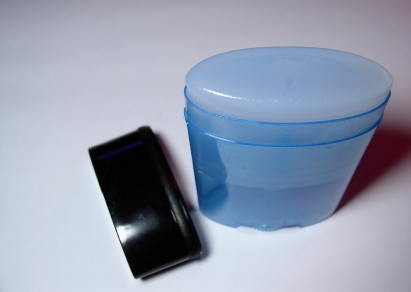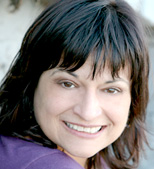|
August 25, 2010
Vol. 3, Issue No. 16
|
A Note from Donya
Hello and welcome to all our new subscribers since the last issue. It's hard to believe that summer is drawing to a close. I keep hoping that we'll get a nice long Indian summer here to make up for the chilly weather we had through most of the season. Fortunately I am headed down to San Diego for a workshop this weekend so I may be able to catch a few rays down there if time (and weather) permits.
With summer winding down, it's time to start preparing for the fall, so we've been keeping busy planning a re-design of the Dropwise web site to make it even more valuable and easy to use. If everything goes according to plan, we hope to roll out the new site in time for the holiday season. In the meantime, we've made some improvements to the way we calculate shipping on orders and added some new shipping options to our shopping cart (see our Product Specials section below for more details on this).
As a follow on to my last article about sunscreens, this week's article takes a look at some of the positive benefits of exposure to sunlight and the promising role that Vitamin D might play in saving cancer sufferers' lives as well as preventing cancer altogether. Finally some good news about the sun!
Yours in health and prosperity,
Donya
Recommended Products & Specials
END OF SUMMER SPECIAL
Take 35% off our Organic Aromatherapy Lip Balms.
Feature Article
Let the Sun Shine In! Too Much Sun May Give You Skin Cancer But Vitamin D Can Save Your Life
 Are you avoiding the sun for fear of getting skin cancer? If yes, then you're not alone. I've done a lot of research and blogged a lot about skin cancer and sun safety because there seems to be a lot of confusion and misinformation on the subject that is affecting the behavior and choices of most people --though not necessarily in a good way. Are you avoiding the sun for fear of getting skin cancer? If yes, then you're not alone. I've done a lot of research and blogged a lot about skin cancer and sun safety because there seems to be a lot of confusion and misinformation on the subject that is affecting the behavior and choices of most people --though not necessarily in a good way.
The media, dermatologists, and some doctors have been hammering in the message that any exposure to the sun is unsafe and so you shouldn't ever go out in the sun without some form of protection or you risk getting skin cancer. With all the new evidence coming to light about chemical sunscreens, our increased understanding of the difference between UVA and UVB radiation, and the role of naturally occurring Vitamin D in reducing our risk for a number of different types of cancer, this is not only a gross exaggeration, but frankly, irresponsible.
As long as the media continues to be the mouthpiece for industry, and the FDA drags its feet for fear of dealing industry a blow in the form of stricter regulations, then confusion will reign and consumers will probably continue to err on the side of what they are led (or misled as the case may be) to believe is "safe" or "safer." So why are there so few voices out there touting the benefits of the sun and the importance of finding a balance between getting enough exposure, without putting your self at risk?
The cynic in me would say there's no money to be made by encouraging people to get some sun, but there is a ton of money to be made from scaring people into believing they should wear sunscreen as a second skin --after all, the companies that make sunscreen products depend on this fear for their livelihood and future prosperity!
Fortunately, there are a few doctors and researchers out there providing a voice of reason on this subject. One key proponent of responsible sun exposure is Michael F. Holick, PhD, MD, who authored a book called "The UV Advantage." In his book Holick cites more than 120 peer-reviewed studies that demonstrate moderate exposure to UV light will give the body the Vitamin D it needs without significant skin damage.
What many people may not know is that your body uses sun light to create Vitamin D -- a key nutrient you need to fight a variety of diseases including diabetes, rheumatoid arthritis, high blood pressure, and some forms of cancers like breast, prostate and colon cancer. Recent studies suggest your body needs up to 1000 mg of Vitamin D per day to cut in half the potential risk for ovarian, colon, and breast cancer. Our bodies convert part of the sun's UVB rays (the same ones that ultimately lead to sun burn) into Vitamin D. Without sun exposure, it's hard to create sufficient amounts of this vital nutrient via diet and supplements alone.
Holick says that slathering SPF 15 sunscreen all over your body (about 1 oz) cuts its ability to make Vitamin D by 95%. That's because all sunscreens are designed to block UVB rays, which are the ones we need to make Vitamin D.
For that reason everyone needs a little unprotected time in the sun, depending on the latitude, time of day, season, and their skin type (degree of skin pigmentation), which he covers in his book in detail. To be sure you're getting enough sun but not too much, he recommends you estimate how long it will take you to get a mild sunburn (i.e. 20 minutes); divide that by 4 (i.e. 5 minutes). Two or three times a week, expose your face, hands, and arms, or legs, for that amount of time, then apply a broad spectrum sunscreen of at least SPF15.
With the arrival of fall and subsequently winter here in the U.S., the intensity of the sun's rays will be much lower than they are in the summer --even during the peak hours of 10 AM to 2 PM. So don't be afraid to let the sun shine in!
Sun exposure offers us many health benefits: it provides us with a natural high by stimulating the release of feel-good substances in the body --serotonin, dopamine, and beta-endorphins. Sunshine also suppresses hormones like melatonin that make you feel sluggish and down. And it's your best source of Vitamin D.
The importance of Vitamin D as a vital and protective nutrient cannot be underestimated. Its role in reducing mortality rates in cancer patients is starting to make many in the medical community question the conventional wisdom about sun safety and weigh the considerable benefits of sun exposure against the potential risk of skin cancer.
In 2009, Dr. Cedric Garland of the University of San Diego School of Medicine published the results of his team's research in the Annals of Epidemiology. The paper entitled "The Role of Vitamin D in Cancer Prevention" establishes a minimum level of Vitamin D that must be present in cancer patients' blood in order to stop them from dying from the cancer.
In this study, researchers at the Moores Cancer Center and Department of Family and Preventive Medicine, UC San Diego used a complex computer prediction model to determine that intake of vitamin D3 and calcium would prevent 58,000 new cases of breast cancer and 49,000 new cases of colorectal cancer annually in the US and Canada. The researchers' model also predicted that 75% of deaths from these cancers could be prevented with adequate intake of vitamin D3 and calcium. In a follow up interview on UCTV, Dr. Garland noted that a Vitamin D test to measure levels of Vitamin D in your blood could be used as an early cancer detection or screening method (i.e. low levels of Vitamin D could be a very early sign of cancer developing).
The findings of this research, and the work of Dr. Holnick indicate that moderate unprotected exposure to the sun is not only safe but also desirable and one might even conclude, necessary. Neither of these doctors is advocating that you throw away your sunscreen just yet. However, this information combined with the growing body of evidence that some sunscreen ingredients are at best ineffective at preventing skin cancer, and at worst, may actually lead to it, requires a serious re-evaluation of our relationship with the sun.
Copyright 2010 Dropwise Essentials
WANT TO USE THIS ARTICLE IN YOUR EZINE OR WEB SITE? You can, as long as you include this complete blurb with it: Donya Fahmy, is a green business owner and the creator of Dropwise Essentials' spa-quality aromatherapy body products that help you safely relieve stress, increase vitality, improve confidence, or simply manage your emotional state any time or place without popping a pill. For more free tips and valuable information visit www.dropwise.com and subscribe to the Dropwise Health & Beauty News Ezine or blog feed.
The Aroma Zone
What's new in the Aroma Zone this week:
 Staying Fresh & Dry: The Difference Between Antiperspirants & Deodorants Staying Fresh & Dry: The Difference Between Antiperspirants & Deodorants
If you enjoy the articles in this newsletter then be sure to visit our blog The Aroma Zone for even more valuable articles, practical tips, and helpful resources on Aromatherapy, Health & Beauty, and Greener & Better Living. You can access the blog any time by clicking on the links to the Aroma Zone found throughout our site. If you don't want to miss anything then you can subscribe to the RSS Feed and all new posts will be sent to you via email.
Please feel free to post comments. Your feedback is always welcome. If you have a burning question about something send it in an email to feedback@dropwise.com.
About Dropwise Essentials
Dropwise Essentials is a San Francisco-based manufacturer of pure aromatherapy and organic plant-based personal care products that give people a safe and effective way to relieve stress, increase vitality, improve confidence, or manage their emotional state any time or place without popping a pill. Our products are:
- Free of synthetic chemicals and petroleum ingredients
- Made with high quality certified organic oils and pure essential oils sourced from around the world
- Packaged in re-usable or recyclable materials
- Hand-made locally in northern California
 Dropwise Essentials was founded by Donya Fahmy, a writer, producer, and consultant whose avid interest in the curative powers of aromatherapy and herbs ultimately led her to design and create the seven products and seventeen unique essential oil blends that make up the current Dropwise product line. She has studied aromatherapy with Carol Schiller - a successful author of several aromatherapy books - and with Dr. Daniel Penoel - a renowned expert in the field of medical aromatherapy. Dropwise Essentials was founded by Donya Fahmy, a writer, producer, and consultant whose avid interest in the curative powers of aromatherapy and herbs ultimately led her to design and create the seven products and seventeen unique essential oil blends that make up the current Dropwise product line. She has studied aromatherapy with Carol Schiller - a successful author of several aromatherapy books - and with Dr. Daniel Penoel - a renowned expert in the field of medical aromatherapy.
Dropwise Essentials is a proud member of the Indie Beauty Network (formerly the Handmade Beauty Network), the Green America Business Network (formerly Co-op America), Green Product Alliance, Natural Ingredient Resource Center, and a Friend of PETA. We were among the first companies to join the Campaign for Safe Cosmetics by signing their Compact for Safe Cosmetics – which simply formalizes our existing commitment to formulate products free of known or potentially toxic ingredients.
|
 Loading... Please wait...
Loading... Please wait...
 Loading... Please wait...
Loading... Please wait...